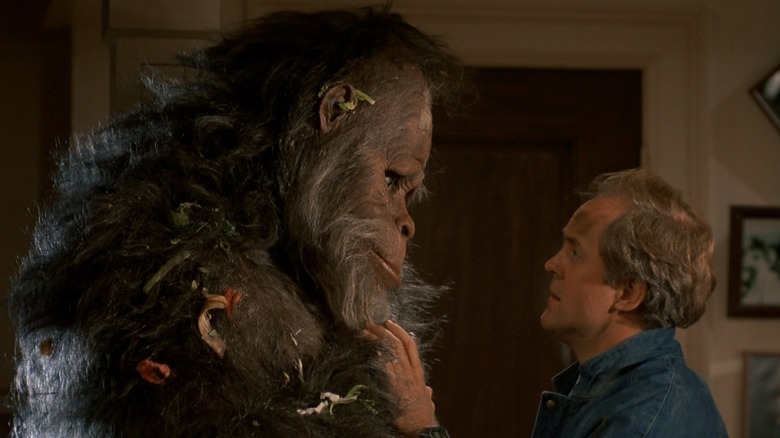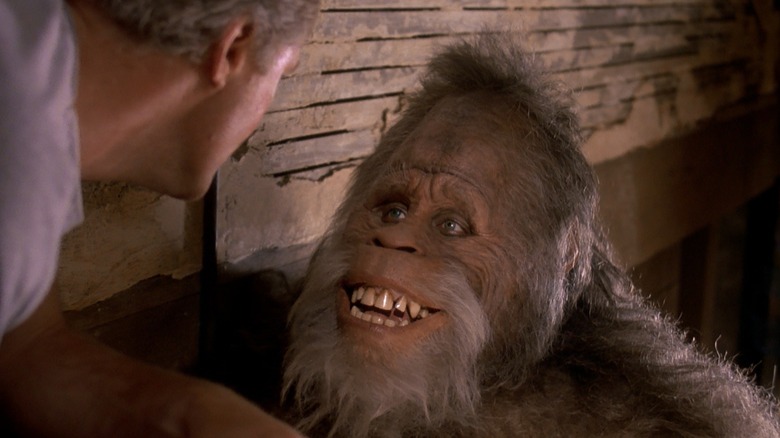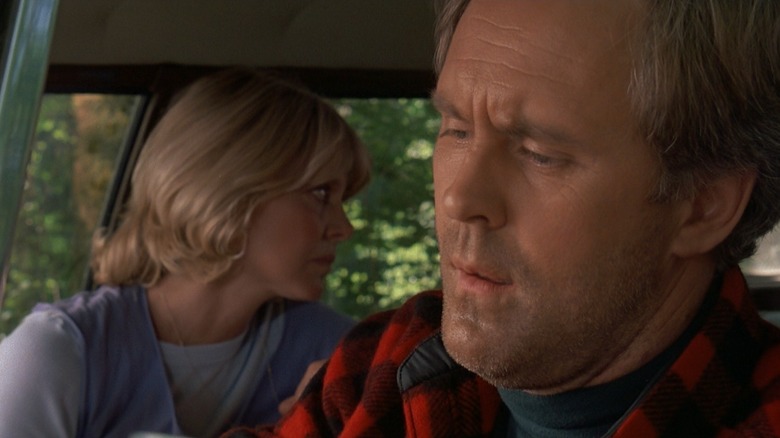Steven Spielberg Had To Step In To Sell John Lithgow On Harry And The Hendersons
The old showbiz maxim holds that actors should avoid working with kids or animals. They're difficult to direct, unpredictable scene partners, and more than likely to upstage you. This should also go for animatronic creations, people in creature, suits and animated characters. It's difficult work, and, even if done to perfection (i.e. Bob Hoskins in "Who Framed Roger Rabbit"), you're unlikely to earn an Academy Award nomination.
This had to be weighing on John Lithgow's mind when he was approached to star in William Dear's "Harry and the Hendersons." The actor had been nominated for Best Supporting Actor twice in the early 1980s, but he hadn't exactly capitalized on the critical acclaim. In an ideal world, his beamed-in-from-Mars portrayal of Dr. Emilio Lizardo in W.D. Richter's "The Adventure of Buckaroo Banzai Across the 8th Dimension" should've garnered him a special Oscar, but some of his other mid-'80s choices (particularly "Santa Claus: The Movie") were real head scratchers. If he was hoping to hop back aboard the awards train, making a Bigfoot movie, even one produced by Steven Spielberg, was probably not the smartest career move.
The career perils of making a Bigfoot movie
Sure enough, Lithgow was very reticent to join the production. In an interview with GQ, Lithgow said, "I read [Harry and the Hendersons] and couldn't quite take it seriously. It just struck me as a Bigfoot movie."
But after he saw some renderings for Rick Baker's Harry, and, not for nothing, had a "very persuasive" chat with Spielberg, Lithgow relented. And he was glad he did:
"I said yes, and it was a Bigfoot film, but it was as good as it gets. For one thing there was a beautiful actor named Kevin Peter Hall who played Harry. And he was like Andy Serkis. Another actor playing the halfway-thankless role of a creature, you never hear his voice. And it's fun. You know it's gonna be kookie, but you've gotta play it for real."
The Harry aftermath
Despite Lithgow's all-in portrayal of a suburban husband and father who finds his life upended when his family is forced to adopt a living, breathing, but very friendly Sasquatch, the film never captures the Amblin magic of "E.T. the Extra-Terrestrial" or "Gremlins." Baker's Harry is, of course, sensational (he won his second of seven Oscars for the lifelike creation), but the screenplay is sluggishly formulaic, which is compounded by Dear's flat direction. The film also sputtered at the U.S. box office, grossing an underwhelming $29 million during the summer of 1987.
As for Lithgow, he continued to be one of the most versatile actors in Hollywood in movies both great and lousy, but was never nominated for an Academy Award again. Clearly, "Harry and the Hendersons" is to blame.


